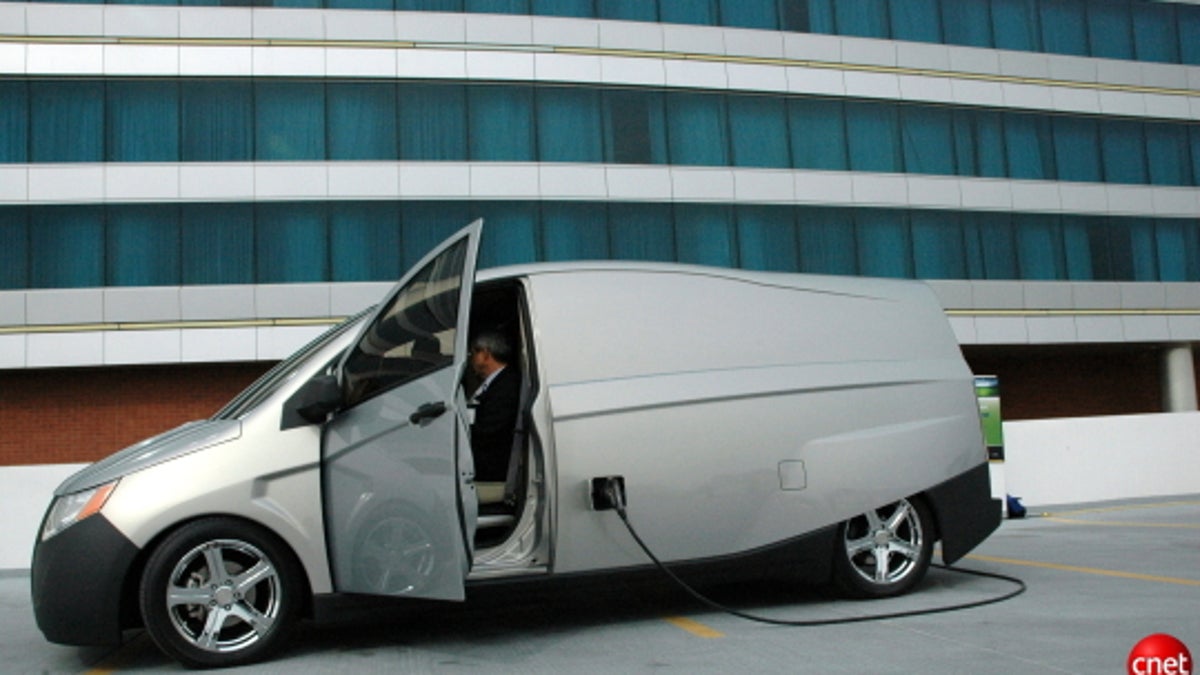EV maker Bright Auto goes dark, blasts stalled DOE loan
Bright Automotive was counting on a U.S. government loan to build a factory for its hybrid utility van, but after three years of waiting, it's forced to shut down.

Bright Automotive designed a unique plug-in electric vehicle, but failure of a government loan to come through has forced it to shut down.
The CEO and chief operation officer of Bright Automotive earlier this week sent a letter to Energy Secretary Steven Chu saying the company has withdrawn its loan application. Without financing to build a factory, the company cannot build its product and so it is shutting down.
Bright Automotive made one prototype utility van, which used lightweight materials and a hybrid electric power train to achieve up to 100 miles per gallon. With the vehicle designed specifically for commercial delivery workers or trades people, the company had hoped government agencies, such as the U.S. Postal Service, would be customers.
The company had lined up more than $200 million in private capital commitments, including an investment from General Motors, but was never able to close a loan from the DOE's Advanced Technology Vehicles Manufacturing (ATVM) program to start production. It was requesting $314 million.
In the letter, CEO Reuben Munger and COO Mike Donoughe said the company had been told in August 2010 that loan approval was expected within weeks. But after over three years of due diligence, the loan was never approved.
"Yet, having in hand a tremendous tool for progress in this critically strategic battle (of reducing dependence on oil)--a tool that drew the country's best to your door--you failed not only in the deployment of funds from ATVM but in dissipating these efforts against not just false hope, but false words," Munger wrote.
Two other electric-vehicle startups--Tesla Motors and Fisker Automotive--received loan guarantees from the ATVM program to build factories for their cars. Fisker is now the process of negotiating terms of its DOE loan because it did not meet certain milestones. Nissan, Ford, and the Vehicle Production Group are also recipients.
Getting the large amounts of money required to start manufacturing is a common challenge for young energy companies. The DOE provided loans to three solar companies for manufacturing, including Solyndra, which went bankrupt and become a hot political issue.
Another route to financing some companies have taken is to partner and take an investment with large corporations which have manufacturing expertise. Solar startups HelioVolt and Stion, for example, brought in investments from Korean manufacturers.
Because of the stock market meltdown in 2008, Bright Automotive was not able to use the public market to raise money and it did not pursue funding from China until it was well into the DOE loan process. "The only opportunities for 100 percent private equity markets are abroad. We made it clear we were an American company, with American workers developing advanced, deliverable and clean American technology," Munger and Donoughe wrote.
There are more than 100 applications for the ATVM program but only one relatively small $50 million loan since December 2008, according to Joann Muller, the Detroit bureau chief for Forbes. Because of the political fall out around Solyndra's bankruptcy, no loans are expected to be approved before the November election, she noted.
"Had we known three years ago what we know now, we'd be a Chinese company--and we'd still be in business," Donoughe told Forbes.

